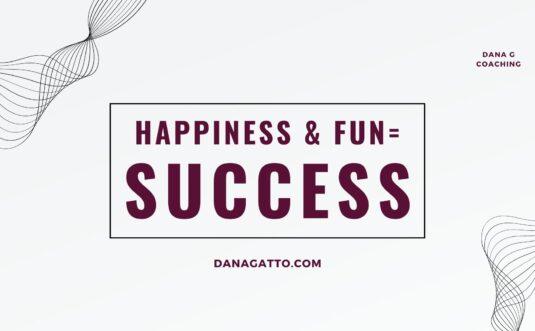The Impact of Operating on Fear
The fear of loss can be so debilitating that is keeps you feeling small, it keeps you attached to what is comfortable but not necessarily what you want, it can keep you from moving forward, it can keep you from allowing yourself to feel attached or happy in relation to others. It can force you to sabotage things when you feel really good. Ultimately is can make life feel very serious.
The eventuality of loss always exists when we feel love, either for a person, a thing, or an experience. This makes love all that much more precious.
But sometimes people are overcome—even paralyzed—by the feared or expected pain associated with that loss. So they try to protect against their pain. They might try to hold tight to the moment or the person, but they are no longer fully open and connected. Inevitably, the love dies, because its been replaced with fear and seriousness.
Sometimes people defend against the feared or expected pain from loss by staying emotionally distant from people. They might even keep their lives small and controllable. But this leaves them feeling cut off from an important part of themselves that is curious, fun, wants to explore and grow, or even has a hidden passion. As a result, they remain stifled and feel empty or dead inside, holding themselves back from the happiness that is so readily accessible.
If you realize that you are protecting yourself from the pain of loss, you have a decision to make. You can let that moment of realization slip by and continue to live a defended life. Or, you can take action toward breaking loose. Once you clearly see what you are doing, you can choose to open up to your emotions and this includes the painful as well as the uplifting. It also helps to be compassionate toward yourself as you tackle the very difficult job of living so fully and openly.
The Risks and Rewards of Living
There’s no way around it. Truly living, fully experiencing love and life, is a risky business. It means choosing to explore new territory and make yourself vulnerable. The raw experience of being in the moment with a deep sense of connection can be powerful—both in breathing the exhilarating feeling of life into you, as well as putting you at risk for a deeply painful loss. But if you let them, beauty, love, and loss all represent opportunities for personal growth and living life fully.
Of all the things that scare us, loss can seem like the most terrifying. At times, I’ve thought about it with such dread that it’s felt overwhelming.
Whenever I quit a job in that past, I felt stuck between two loss-related fears: the fear of losing my passion and freedom by staying, and the fear of losing my financial security or connections with people if I walked away and didn’t love it.
Whenever I considered leaving a bad relationship, I felt paralyzed by two similar fears: the fear of losing my chance at fulfillment by staying, and the fear of losing the comfort of companionship if I walked away and didn’t find someone else.
I haven’t only worried about the potential for loss as it pertains to big decisions. I’ve worried about losing people I love, pleasures I enjoy, and circumstances that feel comfortable. I’ve dreaded losing my connections, sense of identity, and even my self.
And then there are the everyday losses: If I don’t do this, will I lose someone’s respect? If I don’t do that, will I lose my own? If I don’t go, will I lose some as of yet unknown opportunity? If I don’t stay, will I lose my sense of comfort and security?
I might even go so far to say that whenever I fear something, loss is at the root of it. But then I asked myself, what is it that I am really looking for?
Happiness! And I know that I can choose happiness in any moment. I know I can see life as a serious place to be and I can allow fear to take over, or I can choose to go through life seeing it less seriously and having more compassion for myself and others when they forget their potential for feeling good.
Economists have identified loss aversion as a major factor in financial decision-making, in that most people would rather avoid losing money than acquire more. This means that the psychological impact of losing is thought to be twice as powerful as the pleasure of gaining or being happy.
We turn down opportunities that could be rewarding to avoid the risk of losing something else that feels good enough. We use our time in unfulfilling ways because we fear losing time on a decision that might be wrong. And we fail to invest in ourselves, even though we’re aching to expand, because it can feel painful to part with our money or risk being selfish and losing people.
We can’t ever know for certain that a risk will payoff, but we can choose to recognize when the fear of loss motivates our actions, and make a conscious effort to overcome it. If we don’t, it can severely limit our potential for growth, happiness, and fulfillment.
1. Ask yourself, “What am I scared of losing?”
This may seem like an obvious question, but I’ve learned that it’s all too easy to go through our days, making choices, without recognizing the underlying feelings that motivate them.
Whenever you have a choice to make, recognize in what way you’re motivated by the fear of losing something, whether it’s comfort, security, control, money, companionship, or something else.
Once you understand what you’re scared of losing, you can…
2. Understand whether you’re seeing the whole picture.
If you’re making a decision or avoiding making a decision based on the fear of what you might lose, ask yourself if you’re losing more by not doing what you really want to do.
When you attempt to see beyond the fear, you’re better able to recognize if you’re keeping yourself stuck—and if you’d benefit from letting go of what you think you need. In other words…what will you GAIN.
3. Use loss aversion as motivation to pursue what you really want.
If you hang a large calendar on your wall, and put a star on every day when you do something positive—like exercise, meditate, practice a new hobby, or work on a project—you’ll create a psychological need to keep that streak going.
Your disappointment in seeing a day without a gold star is greater than your happiness at any single day’s work.
Of course, you have to know what you really want first.
4. Regularly assess your intentions and motivations.
This ties into the last one. Sometimes we think we want something because we’ve wanted it for years—and then we feel scared to lose that dream and all its related rewards.
But sometimes, as we grow and learn about ourselves and the world, our wants change.
If you’re forcing yourself to do something and a part of you feels it isn’t right, ask yourself, “Do I actually want this right now?” There’s a chance you do, and you’re just feeling frustrated and discouraged—but there’s also a chance you don’t anymore. Only you can know for sure what you really want.
5. Change how you see the inevitability of loss.
The reality is that loss is inevitable.
We will all lose relationships, situations, and states of being that we enjoy and love. You could say that this is what makes life beautiful and meaningful—since nothing lasts forever, each moment presents unique possibilities worth fully appreciating and savoring. We can look at things and realize they don’t have to feel so serious. We can approach life from a light, better-feeling place and know ultimately how we feel is our choice. Happiness is always a choice. And if happiness seems like a reach, simply reach for feeling better.
Or you could say this is what makes life tragic—that everything is fleeting, and eventually it all slips away. You can look at life as something serious, and approach every decision this way.
How we choose to see things dictates how we’ll experience them. Would you rather see everything as precious or pointless?
If we can choose the former, we can recognize that every loss provides opportunities for future gains—new relationships, experiences, and ways of being that may fulfill us in ways we can’t possibly predict.
Of course, this can only happen if we trust in our ability to recognize and create these new connections and situations. We all have the potential to do it.
But somehow, we survive in the wake of almost every storm. Whether we thrive is up to us. That’s a choice we need to make proactively, not in response to what we fear, but in response to what we genuinely want to feel and do in this life.
So I leave you with this question: Why are you afraid of losing? And are you ready to trust in yourself and your abilities so that you can live life your way?



